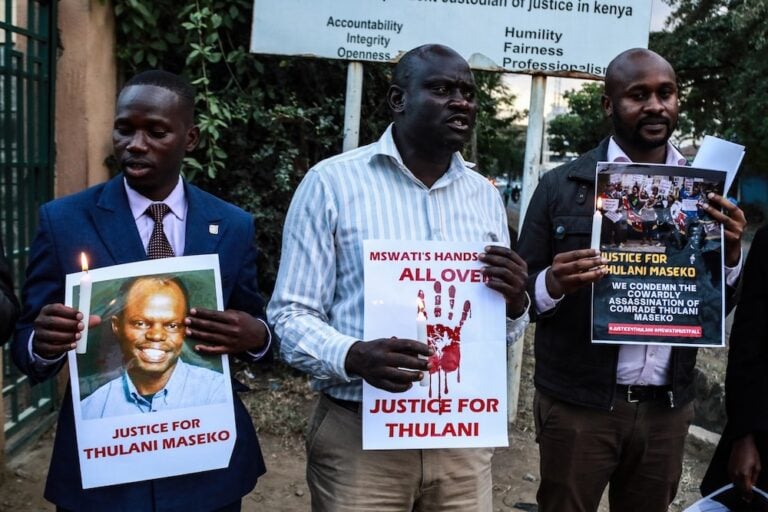On Friday, 30 May 2014, the Swaziland Independent Publishers and The Nation editor Bheki Makhubu won their appeal in the case in which they were charged with “scandalising the court”.
On Friday, 30 May 2014, the Swaziland Independent Publishers and The Nation editor Bheki Makhubu won their appeal in the case in which they were charged with “scandalizing the court”.
The publishers of the magazine had been ordered to pay a fine of E200 000 (approx. US$18,700) and Makhubu was ordered to spend two years in prison if the fine was not paid within three days of the order. The sentence was based on comments made in The Nation by Makhubu about controversial Chief Justice Michael M. Ramodibedi in 2009 and 2010.
On Friday, however, the Supreme Court ruled that Makhubu will receive a three-month fully suspended sentence on condition he is not convicted of any “offence of scandalizing the court” over the next three years. The fine against The Nation was reduced to E30 000 (approx. US$2,800) .
Makhubu, editor of monthly magazine The Nation, and Thulani Maskeo, human rights lawyer and columnist for The Nation, have been behind bars at Swaziland’s Sidwashini prison — just north of the capital Mbabane — for over 70 days. Makhubu was charged for an article he wrote in the February 2014 edition of The Nation, while Maseko’s charge relates to an opinion piece he wrote in the March 2014 edition. In his article Maseko makes an impassioned plea for freedom while calling on the judiciary to uphold the rule of law. As a result of writing these articles both men were charged with criminal contempt of court.
Friday’s ruling in the country’s Supreme Court, which acts as the Court of Appeal, does not relate to the current contempt charge faced by Makhubu and Maseko. Observers are split on whether the ruling will make a difference to future free speech cases in Swaziland, though many believe it could influence the outcome of the current trial involving both Makhubu and Maseko.
In their judgment, the judges noted that no freedom was totally and absolutely free, saying all freedoms are conditional on the rights of others and the public interest.
“These two articles, written by the same person illustrate the kind of searching and critical comment which represent the legitimate exercise of freedom of the press on the one hand and the kind of article which strays into impermissible terrain of scandalising the court,” the judges noted.
The judges ended by saying, “It is to be hoped that the freedoms of speech and of the press will continue to flourish in this land, in an atmosphere which does not necessitate the adjudication of the courts.”


